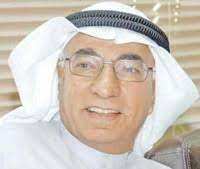06/09/2025
06/09/2025

THE SCO Summit in Tianjin, China, last week signaled the emergence of a new economic power bloc, an alliance consisting of major economies rich in petroleum, ga,s and minerals, with the largest populated nations. Certainly, this is leading towards the rise of powerful nations. It could threaten the position of the United States in the global market, potentially toppling its economic status.

However, it will emerge to tilt the balance away from the USA. Perhaps, this is neither the idea nor the purpose, but it could be used as a ‘standby’ one. From the point of view of OPEC, the new alliance of China, India, and Brazil represents the most important nations importing crude oil and petroleum products from the Arab Gulf countries and other members of OPEC. They also represent future growth and demand for oil. At the same time, they represent future economic growth and the place of current and future investments. We, in Kuwait, are in the right place to invest. It is an emerging market. Kuwait can grow with it in terms of financial investments and lessons to be learned.
Now is the right time and it is the right long-term investment. This is why Kuwait’s oil industry is encouraged to build and invest in refining, similar to what Saudi Aramco is doing. It is the second-largest consumer of oil, with almost 16 million barrels, covering about 25 percent of total demand, second to the USA with about 20 million. While the third-largest consumer of oil is India, with six million, short by more than 10 million barrels per day. The USA is almost steady with 10 million barrels per day. It is trying its best to remain closed to imports, but so far, it is failing to do so. Nonetheless, it is open to imports from all the relevant countries, without exception. Hence, it is the role of OPEC and its partners to push for more crude oil exploration and to dig for oil. The demand is there, and the alternative has yet to appear as a replacement. Luckily for oil-producing countries, the alternative is not yet with us. Fortunately for us in Kuwait and our neighboring oil producers, this is expected to happen sometime in the near future.
In Kuwait, are we ready for that future? It may be saddening, but it is vital to know about it and to be prepared. The choices are not many, but perhaps it is good to invest and collaborate with major international consultants to find and search for options. With the current number of investments globally, alternatives might be found. The search for an alternative to oil is a challenge and a struggle, as others are doing the same. The good news is that Kuwait is investing in the emerging markets and the new power of the future. As long as we invest in emerging markets, we are in safe hands and part of it.
Diversification and searching for ways and means to increase our returns on investments is the only way to plan for the era after oil. We have to continue to find and discover new emerging markets, as the current ones might have matured. With the possibility that oil is not lasting, we must be well prepared.
By Kamel Al-Harami
Independent Oil Analyst
Independent Oil Analyst
Email: [email protected]


